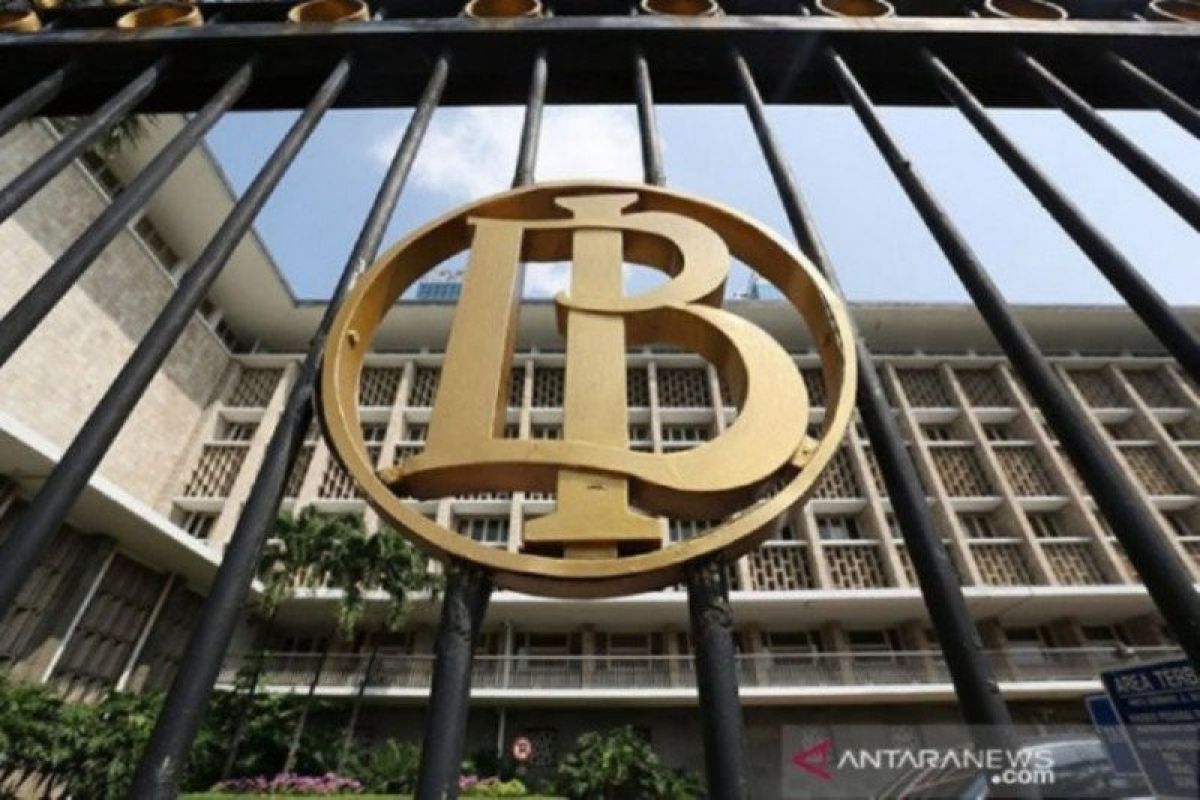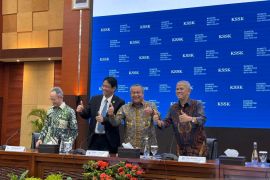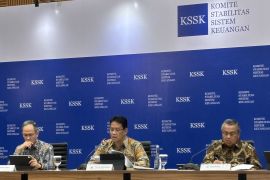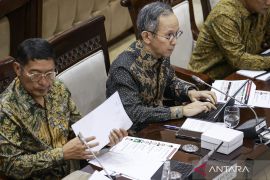Financial sector resilience was maintained as a result of the government, Bank Indonesia, and related authorities synergizing to shoulder joint responsibility in the financial sectorJakarta (ANTARA) - The Financial Stability Review Book (KSK) Number 36, issued by Bank Indonesia (BI), concluded that stability of Indonesia’s financial system could be maintained in the midst of pressure arising from the COVID-19 pandemic in 2020.
"Financial sector resilience was maintained as a result of the government, Bank Indonesia, and related authorities synergizing to shoulder joint responsibility in the financial sector. Various policy synergies, with extraordinary measures related to the National Economic Recovery (PEN) program, have been applied to tackle the pandemic that has battered the economy and financial system," according to an excerpt in the KSK book published on Friday.
The KSK book pointed to various policy responses being deployed for sustaining the domestic economy in the second semester of 2020, which performed better than that in the first semester of 2020.
This is mirrored in the relatively stable financial market and well-maintained banking resilience, in terms of capital, liquidity, and profitability.
In addition, banking resilience in 2020 is still strong, supported by accommodative monetary and macroprudential policies, credit restructuring policies, and accommodative policies of other authorities.
Moreover, the Financial System Stability Index is still in the normal zone. Meanwhile, the financing channeled by the Non-Bank Financial Industry (IKNB) declined in 2020, though at the end of the second half of that year, it started to show signs of improvement, so the resilience of IKNB was maintained in 2020.
The contraction in corporate sales has begun to ease on the back of improvements in the commodity prices and demand as well as improving corporate repayment capacity. Pressure on household performance eased as pressure on corporations reduced. However, consumption has been delayed in line with limited mobility.
This book also throws light at various measurable policy mixes being pursued by Indonesia. On the macroprudential policy side, BI published the Assessment of Basic Credit Interest Rates (SBDK), Loosening of Loan to Value (LTV) for Housing Loans (KPR), and Advances for Motor Vehicle Loans (KKB), and reactivation of the Macroprudential Intermediation Ratio (RIM) gradually in order to encourage bank credit growth.
Meanwhile, BI will additionally expand the scope of financing for MSMEs to boost their access through the issuance of provisions for the Macroprudential Inclusive Financing Ratio (RPIM). In future, policy coordination and synergy will also be further intensified to maintain macroeconomic and financial system stability in addition to applying a plethora of integrated policies to expedite the nation’s economic recovery.
The KSK book is BI's main publication in the Financial System Stability (SSK) sector that is published every semester. This book offers extensive information on results of the assessment and research on Indonesia's FSS.
The FSS also targets to build public confidence in Indonesia's Financial System Stability now and in the future as well as to offer risk signals to the public to undertake risk mitigation efforts.
Related news: Indonesia applies principle of justice in Islamic economy for recovery
Related news: Problems of MSMEs addressed through Job Creation Law: Ministry
Close
EDITED BY INE
Translator: Kuntum K, Azis Kurmala
Editor: Fardah Assegaf
Copyright © ANTARA 2021












